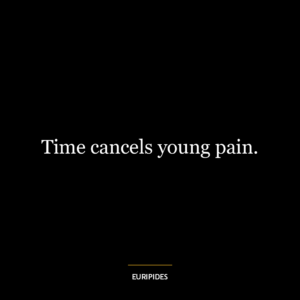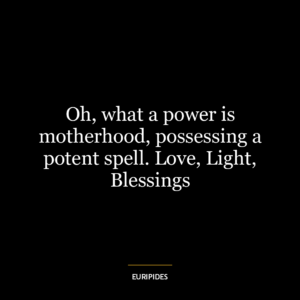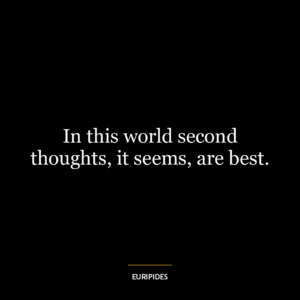O virtue, I have followed you through life, and find you at last but a shade.
This quote is a profound reflection on the pursuit of virtue. It suggests that the speaker has dedicated their life to the pursuit of virtue, only to discover that it is elusive and intangible, like a shadow. It’s not something that can be held or possessed, but rather, it’s a concept that changes and evolves over time, much like a shadow changes with the movement of the sun.
Euripides is not saying that virtue is worthless or meaningless, but rather, he is highlighting its elusive and complex nature. This quote suggests that the pursuit of virtue is not a straightforward path, but a journey of discovery, self-reflection, and personal growth. It’s about striving for moral excellence, even if the goal is not always clear or stable.
In today’s world, this quote can be interpreted as a call for continuous self-improvement and moral growth. In an era where success is often measured by material wealth or social status, Euripides’ words remind us that true virtue lies in our actions, decisions, and character, not in external rewards or recognition. It’s about striving to be the best version of ourselves, even if the path is not always clear or easy.
In terms of personal development, this quote encourages us to embrace the journey of self-improvement, rather than focusing solely on the end goal. It suggests that the pursuit of virtue is a lifelong journey that requires patience, perseverance, and self-reflection. It’s about learning from our mistakes, growing from our experiences, and striving to be better, even if we never reach a state of ‘perfect’ virtue. After all, virtue, like a shadow, is not a destination, but a journey.















